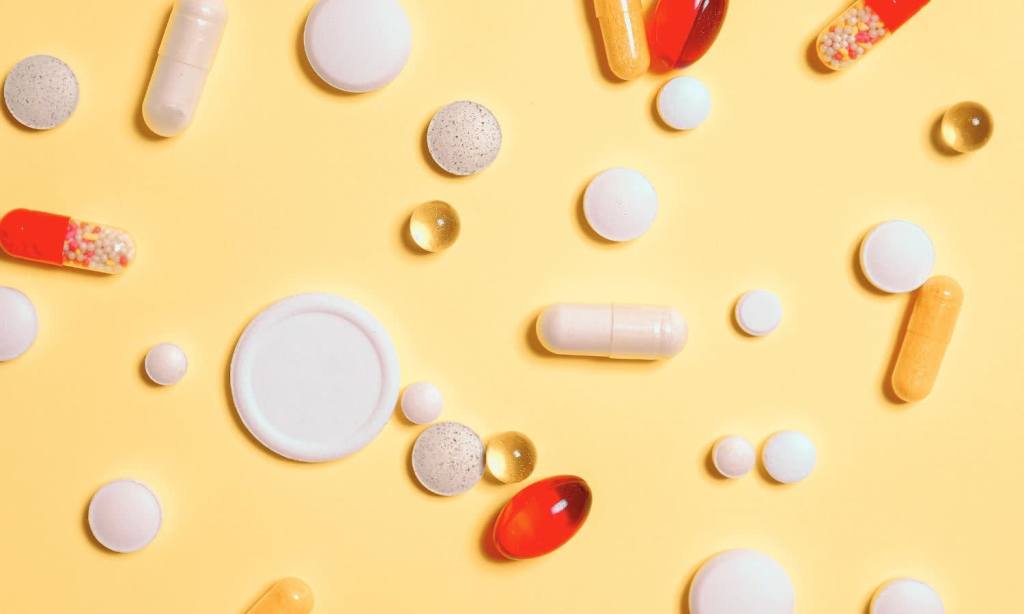Since COVID-19 became a threat for much of the world, the sale of vitamins and herbal supplements has risen dramatically.
A new report by Anahad O’Connor for The New York Times has revealed just how many people have turned to herbs, vitamins and natural cold and flu remedies in the hopes of boosting their immune system.
According to the Times, “none of these products have been shown to lower the likelihood of contracting the coronavirus or shortening its course, and taking large doses of them can potentially do harm.”
The massive spike in sales of these products is staggering, and while this particular data is out of the United States, a similar trend is happening here in Australia.
In the U.S, there has been a 146% rise in the sale of vitamin C, which is often marketed as an immune booster, the Times has reported. Sales of another popular remedy for colds, zinc, experienced a 255% jump, while echinacea rose 122%. The biggest increase was elderberry supplements, often used for immune support, at 415%.
The dramatic uptick in sales has forced many pharmacies to put limits on their vitamin and herbal supplements. A quick scroll on the Chemist Warehouse website shows that most of these products are sold out.
Priceline Pharmacy is similarly lacking in immune support supplements, while Cincotta Chemist has had to suspend online sales altogether due to product shortages.
This trend has also seen the creation of various COVID-19 “remedies” by wellness companies and individuals within the health community.
“Countless natural remedies for coronavirus have circulated on social media, including herbs, saltwater, creams, toothpastes and “miracle mineral solution,” a mixture of sodium chlorite that the Food and Drug Administration has warned is tantamount to drinking bleach,” O’Connor wrote.
Our collective anxiety levels are through the roof at the moment so having individuals or companies preying on that is pretty damn cruel.
In an interview this morning, March 26, Julia Gillard, former Prime Minister and Chair of mental health support service, Beyond Blue, revealed that Australians are experiencing much more anxiety compared to the bushfire crisis only a few short months ago.
“We’re already seeing an increase in the number of people who are reaching out to us,” Gillard told Ray Hadley. “In fact, we’re seeing a greater spike already than we saw during the bushfires.”
Beyond Blue (and Gillard) have one message to Aussie’s feeling stressed over the current situation.
“This will end,” she said. “As bad and as pressurised as it might feel for individuals now, it will come to an end. This is temporary.
“For people who are at home and who are absolutely climbing the walls, a key thing to remember is there is a purpose to this, staying home is about saving lives. If you need help, reach out for it.”
For those who have turned to supplements as a way of increasing their immunity, use them with caution. While research has shown that certain herbs and vitamins can help prevent or treat colds and the flu, there can be downsides when over-consumed.
According to the Times, “excessive levels of zinc, for example, can disrupt the body’s uptake of copper, increasing the likelihood of anemia. Vitamin D is not metabolized efficiently without an adequate level of magnesium, and in high doses it can be toxic.”
Certain supplements can also negatively interact with prescription medication by making it less effective “or, in the case of blood thinners, for example, raising concentrations to dangerously high levels.”
According to Dr. Linda Van Horn, chief of nutrition in the department of preventive medicine at the Northwestern University Feinberg School of Medicine, maintaining a healthy diet, quality sleep and getting regular exercise is the best way to boost your immune system.
“This is an ideal time to look at what you’re eating,” Dr. Van Horn told the Times. “We all know that grocery stores have been experiencing some limitations. But for the most part people are still able to find fresh produce and other healthy foods.”
Keep in mind that health decisions are extremely personal, so if you want to take vitamins and herbal supplements, go for it! Just know that it won’t make a difference in preventing or treating COVID-19.
The best prevention is practising pristine personal hygiene (including regularly washing your hands) and staying at home as much as possible. There is currently no treatment or vaccine for coronavirus, but many of the symptoms can be managed with pain relief medication like paracetamol.
Don’t make any drastic health decisions without consulting your GP.
The current health crisis is evolving rapidly. If you suspect you or a family member has coronavirus you should call (not visit) your GP or ring the national Coronavirus Health Information Hotline on 1800 020 080.
If you or anyone you know is struggling and needs support, call Kids Helpline on 1800 55 1800 or Lifeline on 13 11 14, both of which provide trained counsellors you can talk with 24/7. You can also speak with someone confidentially at Headspace by calling 1800 650 890 or chat online here.
Read more stories from TheLatch— and follow us on Facebook.

